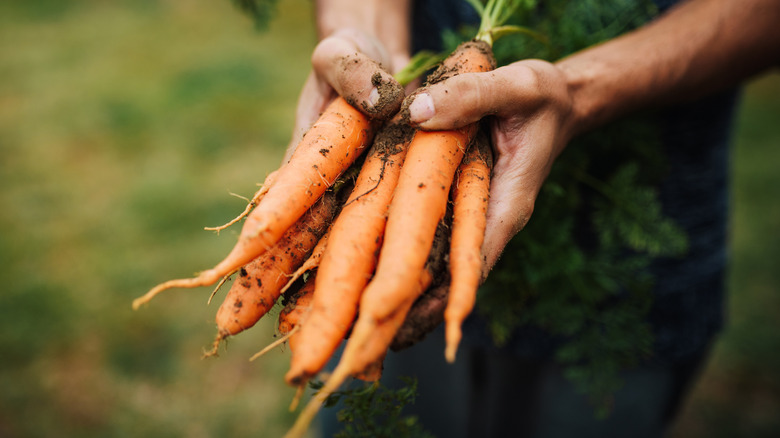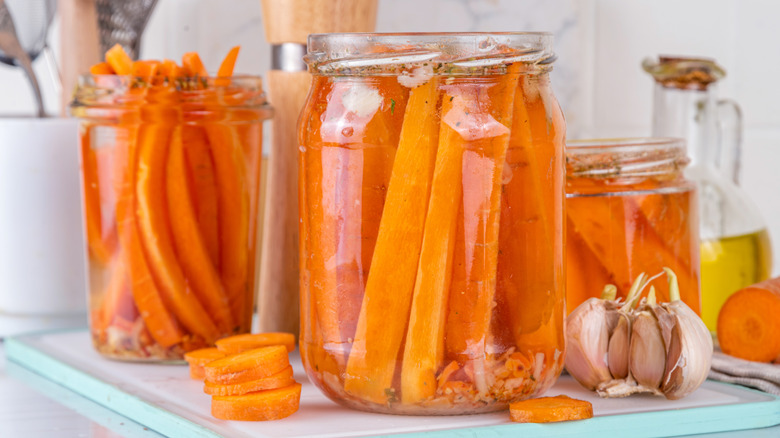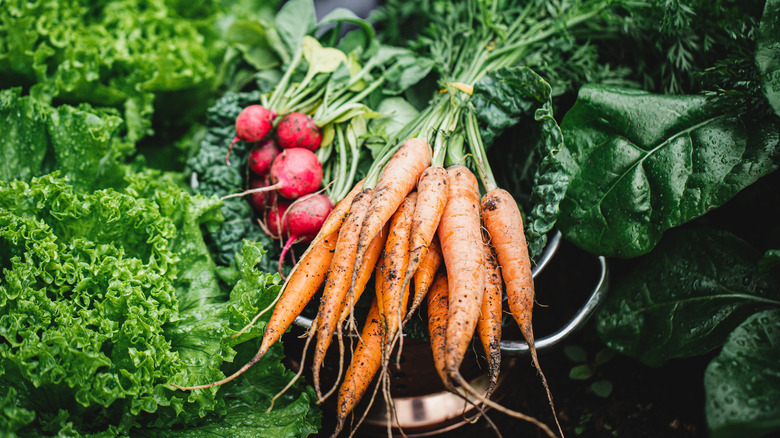The Best Storage Method For Keeping Your Carrots Crunchy
Carrots are the perfect vegetable for when you're craving that crunch — dip them in a little ranch dressing, and you have an easy, nutritious snack. Carrots can also take center stage in plenty of veggie-forward recipes. This bright orange veggie can help keep your vision in good shape, potentially reduce your risk of heart disease, and may even promote brain health. But to enjoy this Bugs Bunny favorite at its best quality, you want it to maintain that perfect crunch. The secret? Store your fresh carrots in water.
That doesn't mean adding a little water to the bottom of a container — we're talking fully submerged. Every part of that carrot should be covered in water, and an easy way to do this is to pop them into a large mason jar (you can trim off the greens, but the jar should be tall enough to fully fit the carrots), fill it, and seal it. Believe it or not, they'll stay fresh for up to four weeks and will be perfect for snacking, or making roasted, caramelized carrots as a delicious side.
Store carrots in water to maintain their freshness
Storing fresh carrots in water works wonders. These root vegetables are nearly 90% water, so it makes sense that they fare best in a cool, wet environment. Carrots can be stored at room temperature, but not for long — they'll go bad in less than a week. Keeping them in the fridge is the best way to extend the shelf life of these veggies. The water trick works with all types of carrots, but if you're storing already-peeled or baby carrots, they'll absorb some water, so you'll want to dry them off before consuming.
If possible, keep that protective skin on your carrots until you're ready to use them; this will keep them fresh the longest. But if you plan to use them within two weeks, you can peel them before storing them. If you want to get the most out of this hack and keep the carrots crunchy for as long as possible, change the water every seven days.
The mason jar method keeps gases out
Aside from storing carrots fully submerged in water, the sealed mason jar method also prevents carrots from absorbing any gases from other produce. Certain fruits and veggies, such as bananas and peppers, can give off ethylene gas, which can alter the freshness of the carrots and speed up their decline. Storing the carrots in a mason jar helps block the exposure to that gas.
If you've kept the carrots for a while and don't think you'll use them within a few weeks, you can freeze them. But you'll want to blanch them beforehand to lock in that color and texture. Blanching involves boiling them very quickly and then dunking them in ice water to cease the cooking process. From there, let the carrots freeze individually for a few hours (you can do this on a baking sheet or any surface where you can spread them out), then transfer them to an airtight container.


